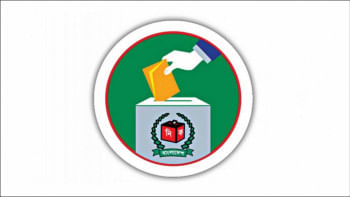Protecting Children from Sexual Abuse - What Parents Can Do?
MYTHS AND REALITIES REGARDING CHILD SEXUAL ABUSE
The most common misconceptions about child sex abuse is that it is only perpetrated by strangers and that it is gender specific to girls. Some think that children from poor families are vulnerable to abuse and children who are healthy or attractive are more at risk. There are misconceptions about perpetrators also, as many think it is only men who abuse children. Collective experience from different parts of the world suggests that relatives and someone known or unknown to the child, men and women-- all can be perpetrators. Sometimes older children (boys and girls) may also abuse younger children. Boys/girls of any age, from any socio-economic background in urban and rural areas are at risk. That said, some children are at an increased risk compared to others (e.g. children with disabilities, children living on the streets). Child sexual abuse happens in many different ways, which can range from inappropriate touching to rape.
IMPACT OF CHILD SEXUAL ABUSE
Children are affected very adversely due to sexual abuse and this has long-term negative impact on their lives, although the full extent of the trauma will vary from child to child. Survivors of abuse may suffer from fear, anxiety, depression, anger etc. Moreover, some may face problems in school, demonstrate negative attitudes, and engage in inappropriate sexual conduct. There are also risks of engaging in anti-social activities; some may even leave home, develop self-destructive tendency, suffer from low self-esteem, and face problems in forming personal relationships.
WHAT PARENTS CAN DO TO PREVENT CHILD SEXUAL ABUSE
Parents should explain if somebody (even if this is a person whom the child likes) does or wants to do something with the child's body that s/he does not want they can and should say “no.” Also, parents need to teach their children to speak up and inform them of anything that strikes them as unusual. Parents on their part should also notice if the child wants to avoid a particular person. If yes, they should try to understand the reasons and must not force the child to interact with him/her. Parents should not prompt the child to cuddle, kiss or sit on relatives' and friends' laps. Instead, they should ask if this is something s/he should like to do.
Children need to be educated by parents that it is the perpetrator who has done something totally unacceptable; the child is never to be blamed for any abuse incident. Children should also be made aware that they should disclose to family members if someone has given a gift in secret, and they should never feel obliged to do any favour in exchange of gifts.
RESPONDING TO CHILD SEXUAL ABUSE
Parents and adult caregivers need to know what they should do if they get to know that a child has been abused. They must listen to the child with attention, trust the child, control own emotions, and should not support the perpetrators. They need to assure the child that s/he is not responsible for what has happened and measures should be taken to protect him/her. If needed, medical, counselling, and legal services should be offered to the child. Other parents in the family should be made aware of the perpetrator so that they can also be more careful about their children.
Adults should not show that they are alarmed, over react, ask too many questions or punish the child. Doing something that the child may feel bad, expressing annoyance or fear, underestimating the incident or taking the side of the perpetrator are all very traumatic and negative feedback for the child.
In some cases, children do not disclose the incident of sexual abuse out of fear and shame. But adults can identify that something is wrong if the child shows the following symptoms: inappropriate sexual behaviour, complains of headache or stomach pain, have sudden problems in school and show an unexplained drop in academic performance. There may be changes in regular behaviour, lack of interest in playing as well as problems in relationship with same age cohort as that of the abuser. Parents/caregivers who observe any such changes in children's behaviour should immediately but subtly explore the issue in depth.
Parent-child relationship is very important when it comes to preventing and responding to child sexual abuse. Children will only feel comfortable in expressing themselves if they feel confident in communicating with the parents without fear.
Child sexual abuse is a taboo topic in our society. Many are in denial that it happens. Even worse, most want to silence the child and do not take any action when the perpetrator is a family member. This affects the parent-child relationship in a negative way, often irreparably, as children's feelings are severely hurt due to the insensitive behaviour of the parents. Can “family honour” be more important than the interest of one's own child? Absolutely not. It is time we break the silence on child sexual abuse. It is also important that parents educate the children on how they can protect themselves, support another child in case of abuse, and also take actions against the perpetrator (no matter who that person is). Parents have responsibilities to protect their children.
Are we doing enough?

 For all latest news, follow The Daily Star's Google News channel.
For all latest news, follow The Daily Star's Google News channel. 



Comments